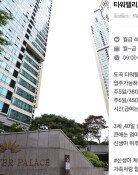BOK warns real estate and stock bubble are similar to currency crisis in 1997
BOK warns real estate and stock bubble are similar to currency crisis in 1997
Posted June. 23, 2021 07:26,
Updated June. 23, 2021 07:26
The Bank of Korea (BOK) warned that the vulnerability of the financial system grew regarding a rapid increase in private debt and asset prices since COVID-19. The bank warned that the gap in the financial system is growing even though it may have been contained so far thanks to the government’s extension of loan maturity for small business owners and small- and medium-sized businesses and low-interest rates since February last year when the pandemic broke out.
According to the BOK’s report on financial stability for the first half of 2021 published on Tuesday, South Korea’s financial vulnerability index, which measures a financial market’s resilience with a score ranging from 0 to 100, rose 17.0 points from the fourth quarter of 2019 to 58.9 in the first quarter of this year. It is the highest figure since the fourth quarter of 2008 when it was 60.0 points amid the global financial crisis. A higher index indicates that when there is an internal or external shock, it tends to have a greater negative impact on the financial market and the overall economy. In particular, the index for the risk of asset prices, including real estate and stock, recorded 91.7 points, which is close to 93.1 points in the second quarter of 1997 right before the currency crisis.
“While short-term financial instability caused by COVID-19 is being addressed, the potential vulnerability of the financial system has expanded from the mid- to long-term perspective,” said the report. It explained that individuals’ risk appetite went up with easy access to loans thanks to low-interest rates and the expanded government expenditure, which led to excessive investment in stock. This drove an increase in asset prices, causing instability in the financial system.
“Considering a prescribed investor rate, it is overpriced,” said the report regarding real estate prices in Seoul. It means that even though the prices soared as a result of excessive liquidity and excessive investment using loans they can drop significantly once the interest rate is raised or other factors take effect. A member of the BOK also said that cryptocurrency is the result of excessive risk appetite, calling for investors’ caution.
The BOK warned that if the current financial imbalances continue, South Korea’s economic growth rate will be less than negative 1.0 percent. Economic crises from financial issues not only have a huge impact on the overall national economy, but also leave deep wounds on many people’s lives, as seen in the case of the currency crisis in 1997 and the global financial crisis in 2008. The South Korean government should actively control the household debt and business loans, which account for 104.7 percent and 111.6 percent of the country’s GDP, respectively.
Headline News
- Med professors announce intention to leave hospitals starting Thursday
- Bridge honoring Sgt. Moon Jae-sik unveiled in Pennsylvania
- Chief of Staff Chung tells presidential secretaries to stay away from politics
- US FTC bans noncompete agreements
- N. Korea launches cyberattacks on S. Korea's defense companies







